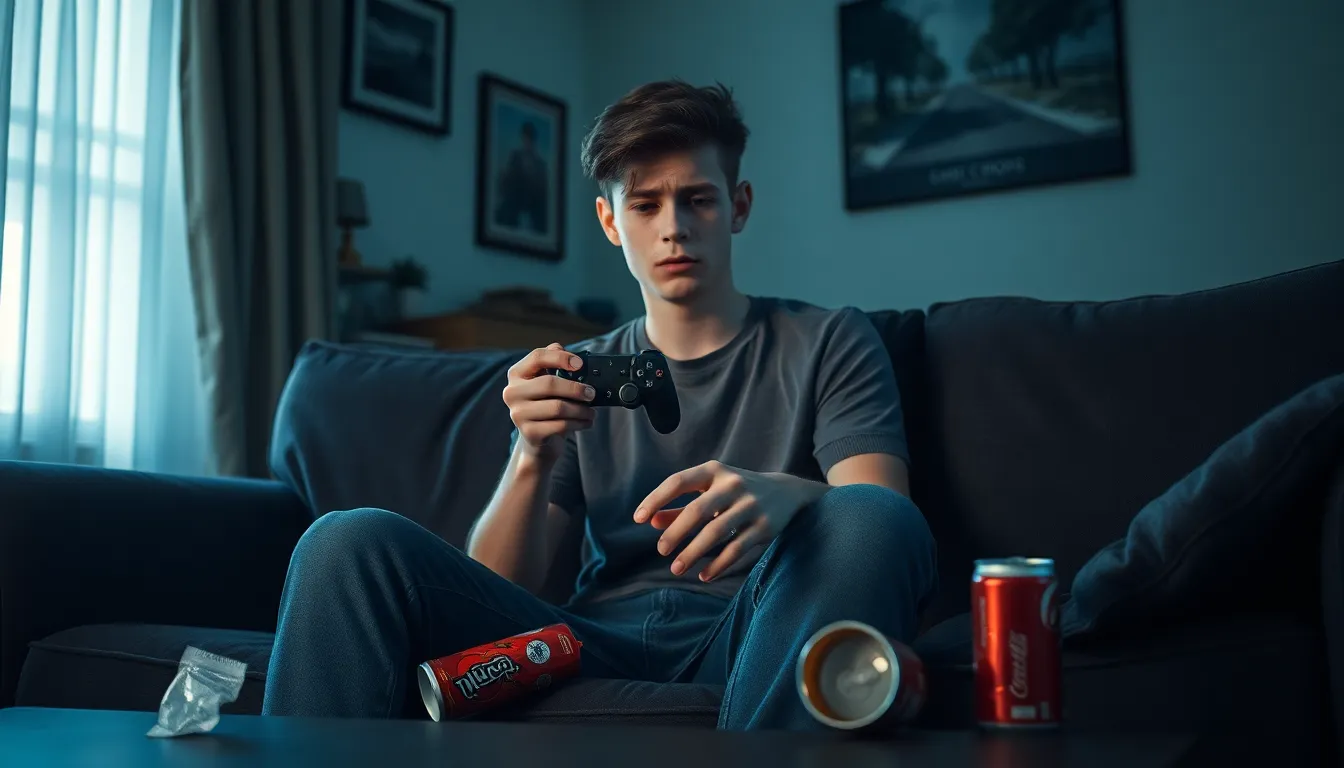Table of Contents
ToggleIn a world where “Game Overdertoza” has become more than just a catchy title, many find themselves trapped in a pixelated paradise. What starts as a harmless escape can quickly morph into an all-consuming obsession, leaving players questioning their life choices. If the thought of logging in makes them feel like a hero but their reality resembles a quest gone wrong, it’s time to hit the reset button.
Fear not, because breaking free from this digital dungeon doesn’t require a magic potion or an enchanted sword. With a sprinkle of humor and a dash of determination, anyone can navigate their way back to reality. This guide offers practical tips to reclaim time, energy, and sanity while still keeping a smile on their face. So grab a snack, sit back, and let’s embark on this quest to defeat the ultimate boss: addiction.
Understanding Game Overdertoza Addiction
Game Overdertoza addiction manifests when players become excessively engaged in the game’s digital environment. This immersion often leads to neglect of daily responsibilities and relationships, with players favoring virtual experiences over real-life interactions.
What Is Game Overdertoza Addiction?
Game Overdertoza addiction refers to the compulsive need to play the game, resulting in a prioritization of gaming above other activities. This addiction can develop gradually as players seek the excitement and challenges presented in the game. The boundaries between gaming and reality blur, causing an overwhelming desire to engage in the game’s virtual quests and social interactions.
Signs and Symptoms of Addiction
Detecting signs of Game Overdertoza addiction requires attention to behaviors. Players may frequently lose track of time while gaming, postpone essential tasks, and experience irritability when not playing. Escaping into gaming as a primary coping mechanism for stress often brings about feelings of euphoria during play. Additionally, withdrawal from friends and family can signal a deeper issue, as social connections weaken while gaming takes precedence. Recognizing these symptoms is vital in addressing the addiction.
The Effects of Game Overdertoza Addiction

Game Overdertoza addiction significantly affects players’ mental and emotional well-being. Frequent gaming escapism leads to heightened anxiety and depression symptoms. Individuals often experience decreased motivation, resulting in increased feelings of isolation. Irritability can emerge when players cannot engage with the game, further exacerbating mental distress. Research indicates addiction may change brain function, making it hard to concentrate or enjoy other activities. Recognizing these implications is crucial for addressing the addiction effectively.
Mental Health Implications
Mental health deteriorates as the addiction intensifies. Players often ignore real-life challenges while finding solace in the game. Repeatedly engaging with a virtual environment diminishes self-esteem and causes mood swings. Emotional well-being suffers, as social withdrawal becomes common. Those struggling frequently experience substance-like withdrawal symptoms, making it difficult to find joy outside gaming. With increasing gaming time, feelings of guilt and shame may follow, creating a cycle that’s hard to break.
Impact on Daily Life and Relationships
Daily responsibilities often fall to the wayside. Prioritizing gameplay results in neglected work, chores, and personal relationships. Friends and family may feel unimportant as the player immerses in their virtual world. Regular obligations like attending social events or fulfilling work duties get postponed or ignored. Players may isolate themselves, leading to significant disruptions in relationships. The emotional distance creates tension, making it challenging to rebuild connections once the addiction manifests.
Steps to Overcome Game Overdertoza Addiction
Addressing Game Overdertoza addiction starts with understanding how deeply it has impacted life. Recognizing excessive gaming patterns is crucial for effective change.
Acknowledging the Problem
Awareness serves as the first step in overcoming addiction. Players may notice significant changes in mood or social interactions when gaming dominates their lives. Noticing how often gaming leads to procrastination emphasizes the need for action. Acknowledging feelings of irritability when unable to play reveals dependency levels. Accepting the situation can motivate individuals to seek healthier alternatives.
Setting Realistic Goals
Defining achievable goals allows for gradual progress. Establish specific limits on daily gaming hours. Prioritizing other activities, like exercise or hobbies, encourages a balanced approach. Breaking tasks into smaller, manageable goals prevents overwhelming feelings. Tracking progress can provide a sense of accomplishment, reinforcing the decision to reduce gaming time.
Seeking Professional Help
Turning to professionals can offer invaluable support. Therapists specializing in behavioral addictions can provide tailored strategies. Attending support groups fosters community and shared experiences. Consultation with a healthcare provider may reveal underlying issues linked to gaming. Recognizing when addiction becomes harmful is vital for mental health and overall well-being.
Building Healthy Habits
Developing healthy habits is essential for overcoming Game Overdertoza addiction. These habits facilitate a balanced lifestyle, allowing individuals to engage in fulfilling activities outside of gaming.
Finding Alternative Activities
Exploring alternative activities helps redirect attention away from gaming. Engaging in physical exercise boosts mood and energy levels. Creative outlets such as painting or writing stimulate the mind and provide a sense of accomplishment. Socializing with friends in person enhances connection and reduces feelings of isolation. Volunteering can also offer new perspectives while contributing positively to the community. Establishing a routine that incorporates these activities ensures a diverse range of experiences.
Creating a Support System
Building a support system enables individuals to share their struggles effectively. Connecting with family and friends fosters accountability and encouragement. Joining support groups provides a sense of community and access to valuable resources. Seeking professional help can also offer tailored strategies for managing addiction. Regularly discussing challenges with supportive individuals reinforces commitment to change. These strategies create a network of encouragement that promotes healthier habits.
Overcoming Game Overdertoza addiction requires a commitment to change and a willingness to embrace life beyond the screen. By recognizing the signs of addiction and taking proactive steps, individuals can reclaim their time and emotional well-being. Building a support system and exploring new activities not only fosters accountability but also enriches daily experiences.
With determination and a positive mindset, it’s possible to break free from the grips of gaming. Each small step taken toward a balanced lifestyle can lead to significant improvements in mental health and personal relationships. The journey may be challenging but the rewards of living fully in the real world are worth every effort.





